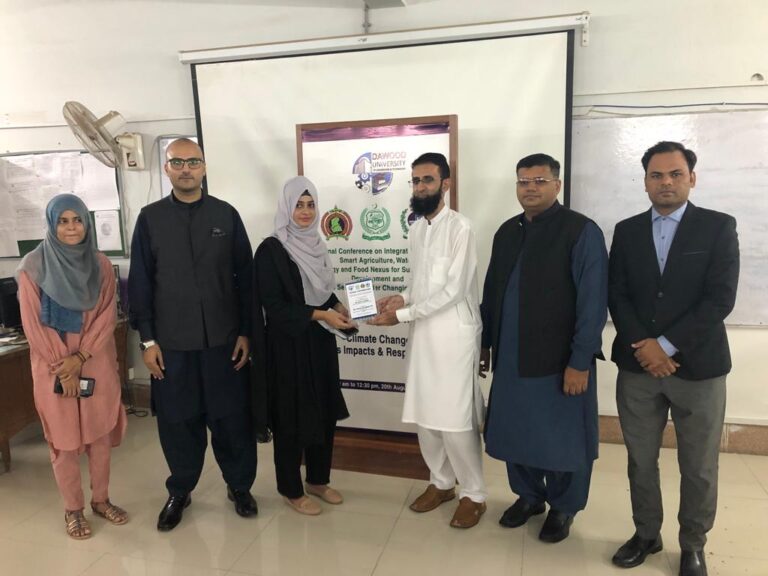
The Center for International Strategic Studies Sindh (CISSS) researchers presented their research “Nuclear Technology in Agriculture Response to Climate Change: Political Economy of Sindh” at the national conference jointly organized by Dawood University of Engineering and Technology (DUET), Karachi and Sindh Agriculture University (SAU), Tandojam.
The researchers included Dr Mohid Iftikhar, Farzana Wahid Buksh, Iraj Abid and Sumair Ayub. On the occasion, Dr Iftikhar explained that Climate Change had global impacts on agriculture and this was evident through reduced productivity and higher prices.
They emphasized that one way to mitigate Climate Change challenges is through Nuclear Applications in Agriculture. For example, empirical evidence was shared that in some countries nuclear applications in agriculture have increased rice, wheat and other crop yields which are also resistant to heat waves, droughts, and salinity.
Dr Mohid Iftikhar noted the significance of this research was that there was abundant literature on the technical side and macro levels. However, an important gap that remains in the field of political economy is how nuclear agriculture improves the livelihood of local farmers in the province of Sindh given challenges from climate change.
It was explained that the Pakistan Atomic Energy Commission’s (PAEC) Nuclear Institute of Agriculture (NIA) since the early days has worked on technological innovation in agriculture and today its crop varieties can address climate change challenges primarily by sustaining the livelihood of local farmers.
Team CISSS concluded that they would further research in assessing the market responses and noted that nuclear agriculture despite climate-related challenges is indeed promising because of its high quality and affordable nature.